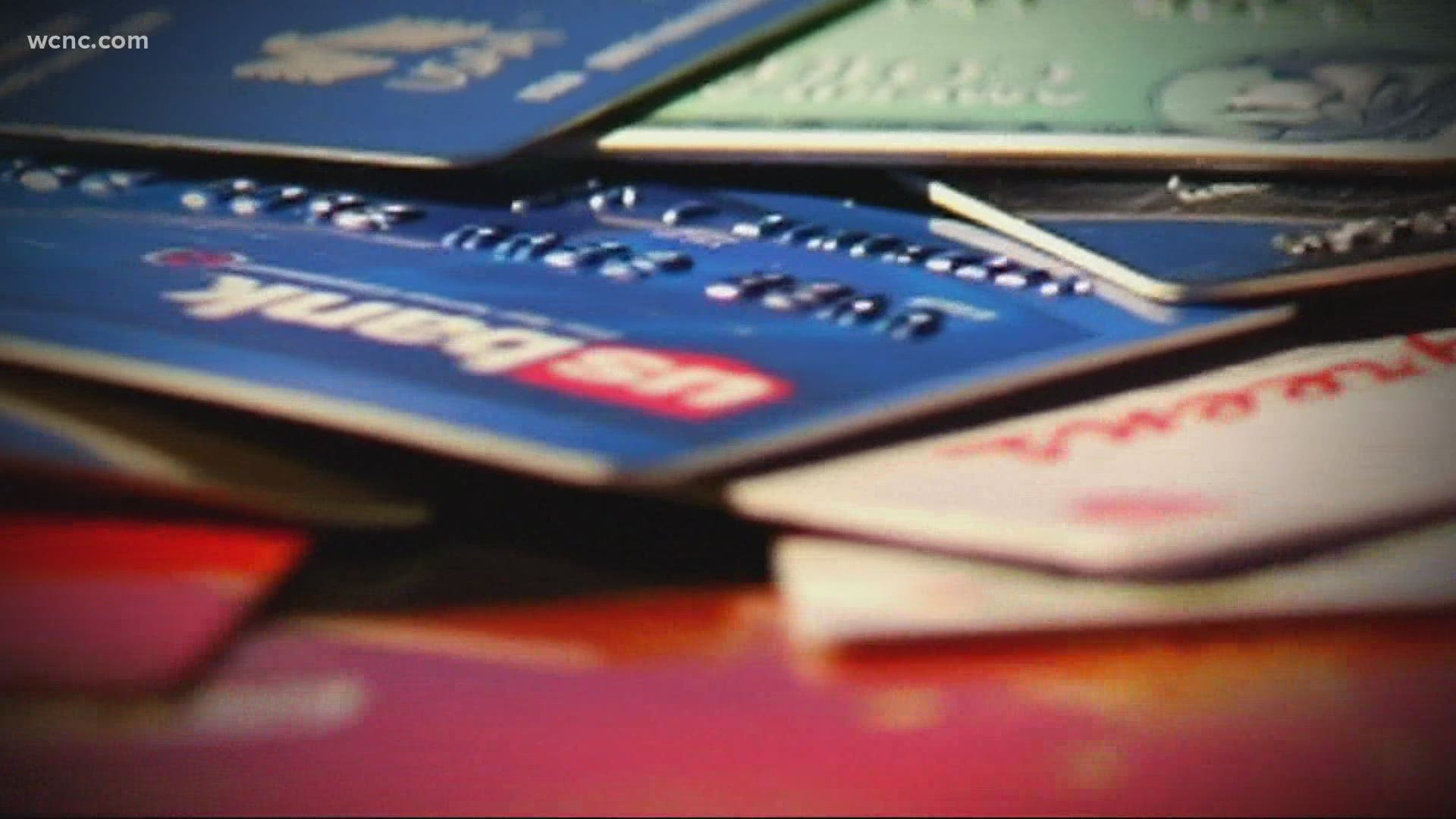CHARLOTTE, N.C. — With so many people losing their jobs due to the COVID-19 pandemic and unemployment benefits running out, many have turned to their credit cards to make ends meet.
While this might've helped pay bills in the short term, it means a lot of people racked up a lot of debt.
"I'll probably never be able to pay it off," said Woody Garrett, who got himself in debt pre-COVID-19 to the tune of more than $100,000. "Rob a bank or something, [maybe] win the lottery."
The Federal Reserve estimates that Americans carry on average, $5,700 in just credit card debt. So if you have $5,000 in debt, at 18% interest and you're making a $200 payment each month, it'll take you 133 months -- or 11 years -- to pay it off. And you'll pay more than $2,800 in interest.
That's overwhelming to many people, and that' just for $5,000 of debt. Imagine triple that?
“The pandemic has sent a lot of people into credit card debt” said Sara Rathner, a credit card expert with NerdWallet.
Rathner knows debt and how to dig out of the whole. Her first tip? Take a real, in-depth inventory of what you spend. Be honest.
“Write down where every penny goes, don’t judge yourself," Rathner said. "Write it all down and at the end of the month, see what you can cut back on."
It takes discipline and a budget.
“One that we offer at NerdWallet, is the 50-30-20 budget, 50% goes to your needs, things like housing, food, medical, child care, things you need month to month," Rathner said. "Then, 30% of your pay can go to wants. Things like going out, hobbies, travel and the things that make life fun.
"Then the other 20% can go to savings or your debt repayment plan and that way you know you can spend confidently because you have made a plan for every dollar."
Another option is to try using only cash. If you don't have cash, then you don't spend. Freeze your credit cards so you can't spend more.
"Cash seems to be more tangible for some people, and others work a budget better when they use a credit card, so it's a very personal decision," Rathner said.
Shifting balances from one credit card to another is not a great idea if the balances are big. Even those "0% interest for a year" cards will kick a high rate your way when that no-interest offer expires, usually in 12-18 months. As a result, you'll end up paying more.
One decent option to consider is a personal loan with a lower rate to consolidate everything. Because it's a fixed rate, you can stretch it out a bit longer, too.
Psychology.org also helps students create budgets and shares budgeting resources.

